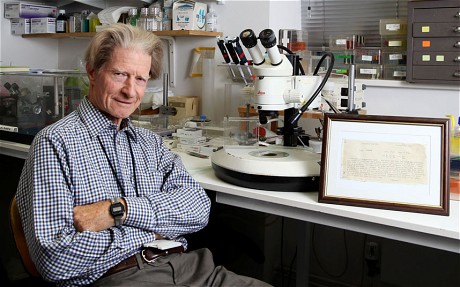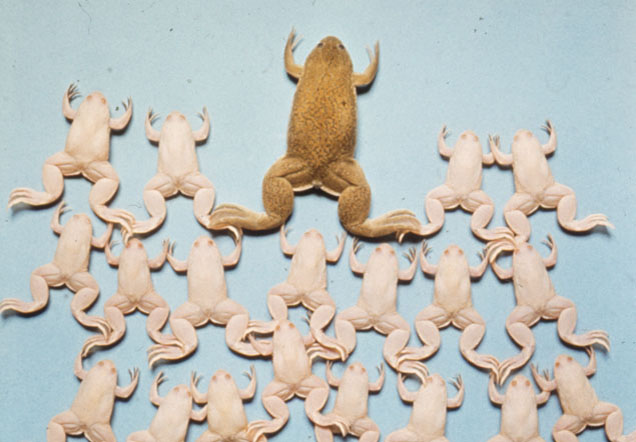John Gurdon Wins 2012 Nobel Prize
Congratulations to John B Gurdon (Cambridge, UK) and Shinya Yamanaka (Tokyo, Japan) who share the 2012 Nobel prize for medicine or physiology for their ground breaking work on nuclear reprograming.

Congratulations to John B Gurdon (Cambridge, UK) and Shinya Yamanaka (Tokyo, Japan) who share the Nobel prize for medicine or physiology for their ground breaking work on nuclear reprograming.
Fifty years ago, in 1962 John Gurdon used Xenopus to show that the nuclei from specialized cells could be reprogrammed to give rise to a complete animal. By nuclear transplantation John introduced the nuclei from Xenopus intestinal epithelial cells into Xenopus eggs that had been enucleated by ultra violet irradiation. After serial transplantation these nuclei gave rise to a complete animal (Figure from John Gurdon). This was the first cloning in vertebrate animals - an approach which later gave rise to Dolly the sheep in the 1990's. To this day John continues his work on the molecular mechanism of nuclear reprograming at the Gurdon Institute, Cambridge UK.
In addition to his work on nuclear reprogramming, John has made many other important contributions to our understanding of cell and development biology including the basic mechanisms of transcription and translation using Xenopus oocyte and embryonic induction in the early embryo. John has been an inspirational mentor and many in the Xenopus community can trace their lineage back to John.
Thank you and Congratulations John - from the Xenopus community.

Last Updated: 2013-08-10
